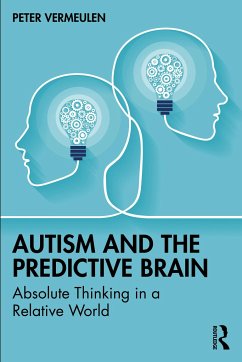
For Whose Benefit?
The Biological and Cultural Evolution of Human Cooperation
Versandkostenfrei!
Versandfertig in 6-10 Tagen
106,99 €
inkl. MwSt.
Weitere Ausgaben:

PAYBACK Punkte
53 °P sammeln!
This book takes the reader on a journey, navigating the enigmatic aspects of cooperation; a journey that starts inside the body and continues via our thoughts to the human super-organism.Cooperation is one of life's fundamental principles. We are all made of parts - genes, cells, organs, neurons, but also of ideas, or 'memes'. Our societies too are made of parts - us humans. Is all this cooperation fundamentally the same process?From the smallest component parts of our bodies and minds to our complicated societies, everywhere cooperation is the organizing principle. Often this cooperation has ...
This book takes the reader on a journey, navigating the enigmatic aspects of cooperation; a journey that starts inside the body and continues via our thoughts to the human super-organism.
Cooperation is one of life's fundamental principles. We are all made of parts - genes, cells, organs, neurons, but also of ideas, or 'memes'. Our societies too are made of parts - us humans. Is all this cooperation fundamentally the same process?
From the smallest component parts of our bodies and minds to our complicated societies, everywhere cooperation is the organizing principle. Often this cooperation has emerged because the constituting parts have benefited from the interactions, but not seldom the cooperating units appear to lose on the interaction. How then to explain cooperation? How can we understand our intricate societies where we regularly provide small and large favors for people we are unrelated to, know, or even never expect to meet again? Where does the idea come fromthat it is right to risk one's life for country, religion or freedom? The answers seem to reside in the two processes that have shaped humanity: biological and cultural evolution.
Cooperation is one of life's fundamental principles. We are all made of parts - genes, cells, organs, neurons, but also of ideas, or 'memes'. Our societies too are made of parts - us humans. Is all this cooperation fundamentally the same process?
From the smallest component parts of our bodies and minds to our complicated societies, everywhere cooperation is the organizing principle. Often this cooperation has emerged because the constituting parts have benefited from the interactions, but not seldom the cooperating units appear to lose on the interaction. How then to explain cooperation? How can we understand our intricate societies where we regularly provide small and large favors for people we are unrelated to, know, or even never expect to meet again? Where does the idea come fromthat it is right to risk one's life for country, religion or freedom? The answers seem to reside in the two processes that have shaped humanity: biological and cultural evolution.














